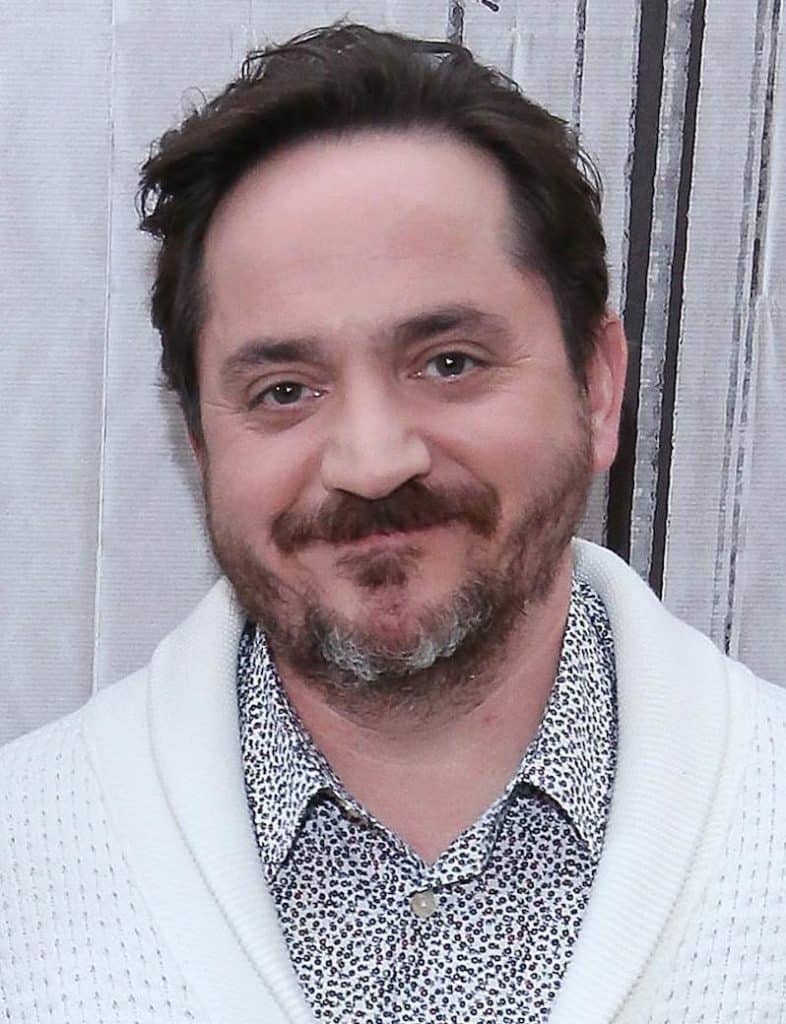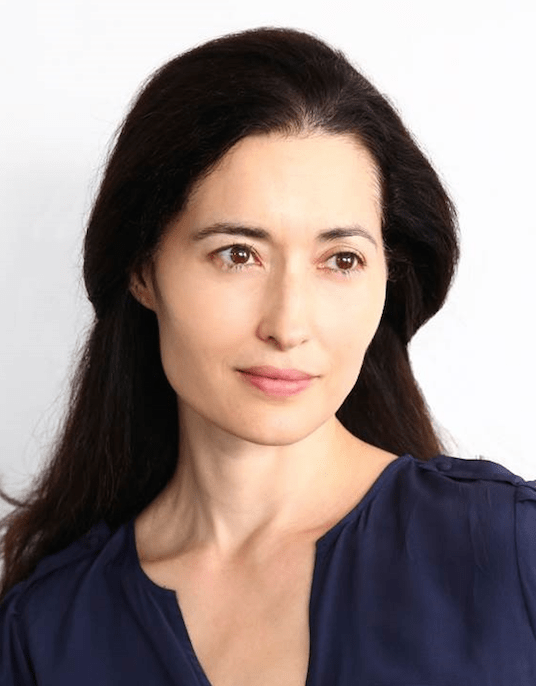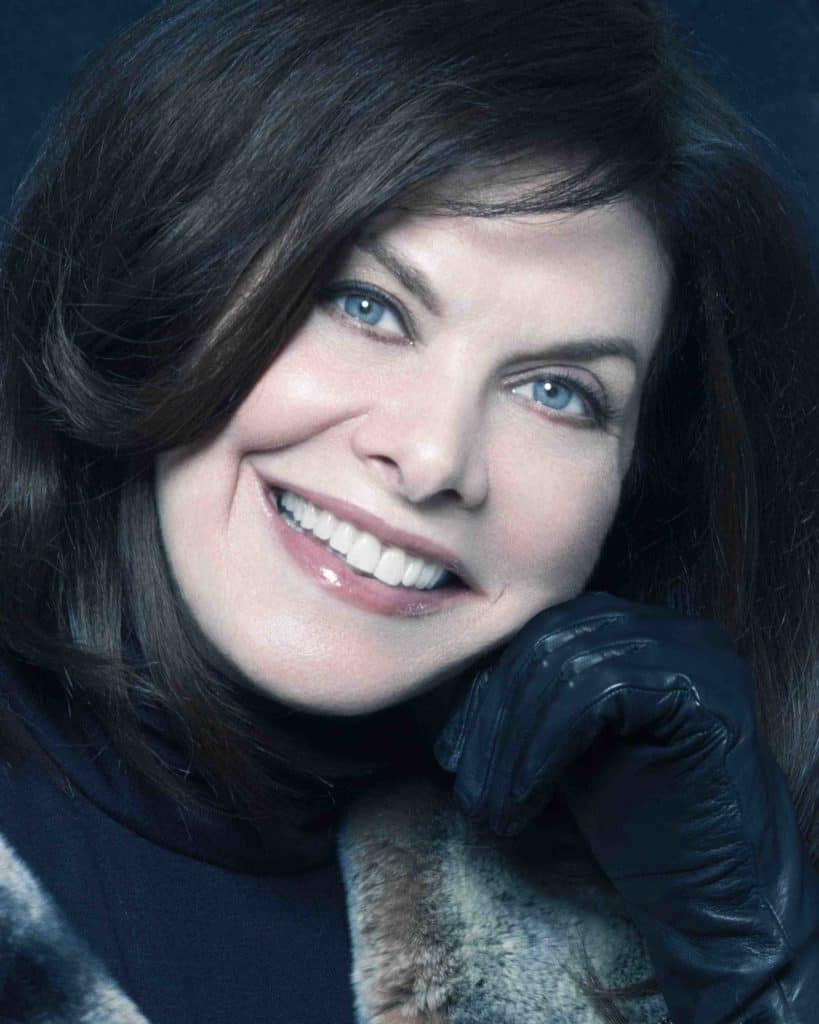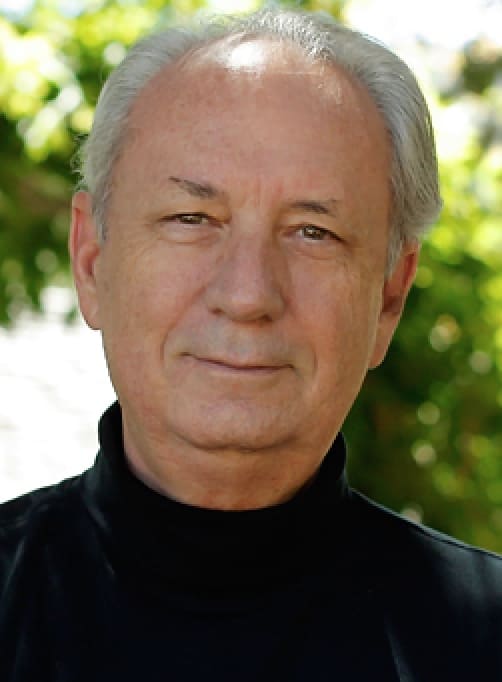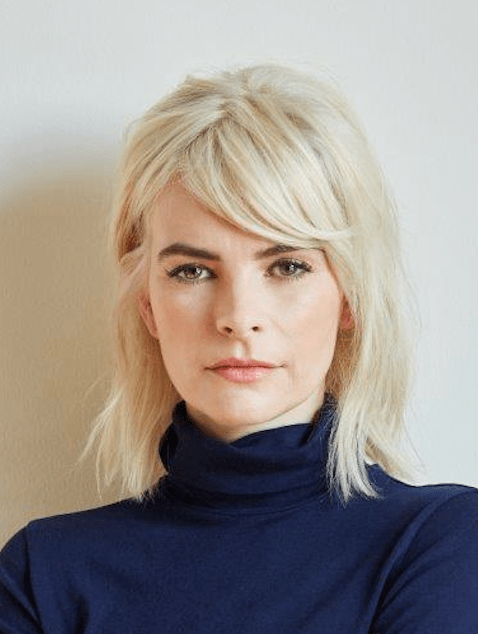Posts by Live Talks LA
Ben Falcone with Melissa McCarthy
7:30pm
Ben Falcone
in conversation with Melissa McCarthy
discussing his essay collection,
Being a Dad Is Weird: Lessons in Fatherhood from My Family to Yours
Ann and Jerry Moss Theatre
New Roads School
Herb Alpert Educational Village
3131 Olympic Boulevard
Santa Monica, CA 90404
SOLD OUT
Video will be posted a week after event
Charmaine Craig with Jane Smiley
Charmaine Craig
in conversation with Jane Smiley
William Turner Gallery
Bergamot Station Arts Center
2525 Michigan Avenue,
Santa Monica, CA 90404
This event is part of our Newer Voices Series.
General Admission tickets are complimentary, but we encourage you to support these newer authors and purchase their books.
RSVP HERE for free tickets to this event
$28 Reserved Seat + Book PURCHASE BOOK HERE
Charmaine Craig is a faculty member in the Department of Creative Writing at UC Riverside, and the descendant of significant figures in Burma’s modern history. A former actor in film and television, she studied literature at Harvard University and received her MFA from the University of California, Irvine. Her first novel, The Good Men (Riverhead), was a national bestseller translated into six languages.
Jane Smiley is the author of numerous novels, including A Thousand Acres, which was awarded the Pulitzer Prize, and most recently, Golden Age, Some Luck and Early Warning, the volumes of The Last Hundred Years trilogy. She is also the author of five works of nonfiction and a series of books for young adults. A member of the American Academy of Arts and Letters, she has also received the PEN Center USA Lifetime Achievement Award for Literature.
Miss Burma is a beautiful and poignant story of one family during the most violent and turbulent years of world history. Miss Burma is a powerful novel of love and war, colonialism and ethnicity, and the ties of blood.
Miss Burma tells the story of modern-day Burma through the eyes of Benny and Khin, husband and wife, and their daughter Louisa. After attending school in Calcutta, Benny settles in Rangoon, then part of the British Empire, and falls in love with Khin, a woman who is part of a long-persecuted ethnic minority group, the Karen. World War II comes to Southeast Asia, and Benny and Khin must go into hiding in the eastern part of the country during the Japanese Occupation, beginning a journey that will lead them to change the country’s history. After the war, the British authorities make a deal with the Burman nationalists, led by Aung San, whose party gains control of the country. When Aung San is assassinated, his successor ignores the pleas for self-government of the Karen people and other ethnic groups, and in doing so sets off what will become the longest-running civil war in recorded history. Benny and Khin’s eldest child, Louisa, has a danger-filled, tempestuous childhood and reaches prominence as Burma’s first beauty queen soon before the country falls to dictatorship. As Louisa navigates her newfound fame, she is forced to reckon with her family’s past, the West’s ongoing covert dealings in her country, and her own loyalty to the cause of the Karen people.
Based on the story of the author’s mother and grandparents, Miss Burma is a captivating portrait of how modern Burma came to be and of the ordinary people swept up in the struggle for self-determination and freedom.
Sherry Lansing with Stephen Galloway
8pm
(Note: event date changed from May 2)
in conversation with Stephen Galloway
Leading Lady: Sherry Lansing and the Making of a Hollywood Groundbreaker
Ann and Jerry Moss Theatre
New Roads School
Herb Alpert Educational Village
3131 Olympic Boulevard
Santa Monica, CA 90404
PURCHASE TICKETS
$20 General Admission seat
$45 Reserved Section Seat + a copy of Leading Lady
$95 Reception (6:30-7:30pm) + Reserved Section Seat
+ copy of Leading Lady
Sherry Lansing has worked in the motion picture business for almost 30 years where she was involved in the production, marketing, and distribution of more than 200 films, including Academy Award winners Forrest Gump (1994), Braveheart (1995), and Titanic (1997). Throughout her film career, she earned a reputation as a trailblazer, a visionary leader, and a creative filmmaker. In 1980, she became the first woman to head a major film studio when she was appointed President of 20th Century Fox. Later, as an independent producer, Lansing was responsible for such successful films as Fatal Attraction, The Accused, School Ties, Indecent Proposal, and Black Rain. Returning to the executive ranks in 1992, she was named Chairman and CEO of Paramount Pictures and began an unprecedented tenure that lasted more than 12 years (1992 – 2005), during which the studio enjoyed enormous creative and financial success.
She founded The Sherry Lansing Foundation (SLF) in 2005, a nonprofit organization dedicated to cancer research, health, public education, and encore career opportunities. Among the SLF’s initiatives is the EnCorps STEM Teachers Program, founded by Lansing to transition corporate professionals and military veterans into top quality California public school math and science teachers. Lansing is also a co-founder of the Stand Up To Cancer initiative, which funds collaborative, multi-institutional cancer research “Dream Teams.”
She serves on the University of California Board of Regents, as a trustee of Big Brothers Big Sisters of Greater Los Angeles, where she co-founded the Scholarship Fund for deserving “Littles Sisters and Brothers.” In December 2004, Lansing was appointed to the Independent Citizens’ Oversight Committee of the California Institute for Regenerative Medicine.
Lansing additionally serves on the boards of the American Cancer Society Cancer Action Network, the Broad Center for the Management of School Systems, the Carter Center, the Entertainment Industry Foundation, the W.M. Keck Foundation, the Lasker Foundation, and the Pacific Council on International Policy. She also serves on the Executive Committee of Friends of Cancer Research and is Honorary Chair of STOP CANCER, a nonprofit philanthropic organization which she founded in partnership with the late Dr. Armand Hammer.
Lansing graduated cum laude with a Bachelor of Science Degree from Northwestern University in 1966.
Stephen Galloway is an Emmy Award-winning journalist who serves as the executive features editor for The Hollywood Reporter. Among his honors, he was named 2013 journalist of the year at the National Entertainment Journalism Awards.
He has interviewed a who’s who of Hollywood including Steven Spielberg, Denzel Washington, Sean Penn, Brad Pitt and George Clooney. He also created the Reporter’s acclaimed roundtable series, featuring the likes of Clint Eastwood, Peter Jackson, Quentin Tarantino, James Cameron, Sandra Bullock and Nicole Kidman.
In 2014, he was named the Cosgrove Visiting Artist at Loyola Marymount University, where he continues to host the interview series The Hollywood Masters. Born in the United Kingdom, he holds an M.A. from Cambridge University and is a graduate of the American Film Institute’s Center for Advanced Film and Television Studies.
Michael Nesmith with D.A. Wallach
8pm
Michael Nesmith
in conversation with D.A. Wallach
Infinite Tuesday: An Autobiographical Riff
Ann and Jerry Moss Theatre
New Roads School
Herb Alpert Educational Village
3131 Olympic Boulevard
Santa Monica, CA 90404
PURCHASE TICKETS
$45 General Admission seat + a copy of Infinite Tuesday*
$50 Reserved Section Seat + a copy of Infinite Tuesday*
* a book signing follows for all copies of Infinite Tuesday
$40 Signed book only (shipping, tax, handling included-US addresses only)
Read a feature on Nesmith in the Los Angeles Times, April, 7
Michael Nesmith‘s career in music and television took him from starring in The Monkees to a celebrated run of albums as a solo artist and in the First National Band. He created the TV show Popclips, a forerunner of what would become MTV, and produced the films Repo Man and Tapeheads. He is the author of two novels and the founder of the Pacific Arts Corporation, which produces projects in the worlds of audio, video, and virtual reality, including Videoranch 3D.
The long, strange journey of Michael Nesmith is as fascinating as it as was fraught–from fleeing Dallas as a young man with his pregnant girlfriend, to gaining international fame as a member of the Monkees, to falling deep into the grips of what he calls Celebrity Psychosis, to finally achieving inner peace and finding a creative wellspring in the teachings of Christian Science. Influenced in equal parts by the consciousness-expanding ambitions of Timothy Leary and the cerebral humor of Douglas Adams, in Infinite Tuesday, Nesmith spins a spellbinding tale of an unexpected life, in which stories about meeting John Lennon, or recording with Nashville greats, or inventing the music video trace an arc from Hollywood to Silicon Valley, illuminating a remarkable mind along the way.
D.A. Wallach is a recording artist, songwriter, investor, and essayist who Kanye West and Pharrell Williams discovered while he was an undergraduate at Harvard College. He has been featured in GQ, Rolling Stone, Vogue, and numerous other publications, and has toured with N*E*R*D, Lady Gaga, and Weezer. D.A. has also performed on TV Shows including Jimmy Kimmel Live and Late Night with Jimmy Fallon.
As one half of Chester French, D.A. has released three full-length albums, and has written and performed on records with Janelle Monae, Rick Ross, Diddy, and many others. His solo debut for Capitol Records is Time Machine.
Beyond music, D.A. invests in and advises several start-up technology companies, including SpaceX, Doctor On Demand, Ripple Labs, DAQRI, and Spotify, where he was the official Artist in Residence. Forbes selected D.A. as one of its 30 Under 30 and Fast Company named him one of the 100 Most Creative People in Business. In 2015, he launched Inevitable Ventures, an investment partnership with multibillionaire Ron Burkle that supports radical entrepreneurs in areas ranging from health care to labor.
In 2016, D.A. made his feature film debut in La La Land, which won a record number of Golden Globe Awards and received 14 Academy Award nominations, making it one of the 3 most nominated films in history. He frequently publishes essays on media, technology, and philosophy on his website and Medium.
Kelly Oxford with Busy Philipps
8pm
Kelly Oxford
in conversation with Busy Philipps
When You Find Out the World Is Against You: And Other Funny Memories About Awful Moments
Ann and Jerry Moss Theatre
New Roads School
Herb Alpert Educational Village
3131 Olympic Boulevard
Santa Monica, CA 90404
PURCHASE TICKETS (On Sale Friday Mar 3, 10am)
$46 Reserved Section seat + a copy of Oxford’s book
$20 Reserved Section Seat
— New York Times on #NotOkay Social Media campaign launched by Oxford that drew millions,
— CBS News on the #NotOkay social media movement
Kelly Oxford likes to blow up the internet. Whether it is with the kind of Tweets that lead Rolling Stone to name her one of the Funniest People on Twitter or with pictures of her hilariously adorable family (human and animal) or with something much more serious, like creating the hashtag #NotOkay, where millions of women came together to share their stories of sexual assault, Kelly has a unique, razor-sharp perspective on modern life. As a screen writer, professional sh*t disturber, wife and mother of three, Kelly is about everything but the status quo.
“Kelly Oxford’s writing is hilarious and fearless. She’s the badass Canadian sister I never had.” — Mindy Kaling
“Kelly is part geek, part freak. When You Find Out The World Is Against You shows us ourselves: our sensitivities, our awkward moments, our strange desires. She takes us through summer camp, dating, rape culture, Trump, death . . . Kelly Oxford c’est moi.” — James Franco
“I have worshipped the mind of Kelly Oxford for eons. Kelly Oxford’s concise, whip-smart observations feel eerily universal. When You Find Out the World is Against You shows that there is something to be learned from even the most absurd or devastating moments of life.” — Jill Soloway
“Two things I’m grateful for: how imperfect Kelly Oxford is at life and decision-making, and how terrific she is at writing about what a goddamn mess she is.” — Patton Oswalt
When You Find Out the World is Against You is filled with the biting, wise, and laugh-out-loud insights that have won Kelly legions of fans. Whether she’s detailing her obsession as an eleven-year-old with going to camp so she can become a “kissing bandit,” exploring the bittersweet boredom that so often accompanies parenthood, calling out the insanity of a posse of internet poodle vigilantes, writing bracingly about the anxiety that has plagued her as long as she can remember or taking us to ride shotgun as she stalks her husband on an accidental date with another man, When You Find Out the World Is Against You is Kelly at her most honest and disarmingly funny best. Her comedic skill, down-to-earth voice, and bull’s-eye observations on the absurdity of modern life mean there is nothing quite like seeing the world through Kelly’s eyes.
Busy Philipps is currently in HBO’s Vice Principals, an 18-episode comedy series from Eastbound & Down creators Danny McBride and Jody Hill. She was last seen on the popular TBS comedy Cougar Town where she plays ‘Laurie Keller’ opposite Courteney Cox. She was also recently seen in Joel Edgerton’s thriller The Gift. The STX film starred Joel Edgerton alongside Jason Bateman and Rebecca Hall, a story of a young married couple’s lives that are thrown into a tailspin when an acquaintance from the husband’s path brings mysterious gifts and a horrifying secret to light.
Philipps first garnered attention at the age of 19 in Judd Apatow and Paul Feig’s critically praised series, Freaks and Geeks, for her memorable performance as tough but sympathetic rebel teen ‘Kim Kelly’. Other television appearances include: Terminator: The Sarah Connor Chronicles; a recurring role as the devout Christian med-student ‘Hope Bobeck’ on season 14 of ER; a starring role in the UPN sitcom Love, Inc.; and as a regular in Dawson’s Creek.
Philipps’ film roles include Kat Coiro’s A Case of You opposite Justin Long, Peter Dinklage and Sam Rockwell, Douglas McGrath’s I Don’t Know How She Does It starring Sarah Jessica Parker; the comedy romance He’s Just Not That Into You; and Made of Honor alongside Patrick Dempsey and Michelle Monaghan. Other film credits include, the lead role in the Shawn and Marlon Wayans comedy White Chicks; the high school tragedy, Home Room; as well as the teen drama The Smokers; and Anatomy of a Hate Crime for which she impressed critics and fans.
Q and A with Charmaine Craig, author of Miss Burma
What drew you to write this story?
I can’t remember a time when I wasn’t both intrigued and frightened by the myth of my mother and her native country, by their secrets and contradictions. My mother was generally quiet about the subject of her past in Burma, but I knew from my American father that she had been a beauty queen and famous actress, and that she had become a warrior when her first husband, of the same ethnic minority group, was slain. How could someone so modest—someone who called herself a pacifist, who professed to care mostly about mothering, and who taught me to cultivate inner beauty with a kind of single-mindedness that sometimes struck me as detrimental to my wellbeing—have willingly participated in those things? Why, when she mentioned the past, did she speak of her love for the same country that practiced a systematized form of ethnic cleansing—a country whose government had apparently put a price on my mother’s head? And why did it sometimes seem that my mother wanted to keep me in the dark about her personal and national history, almost as though I were unworthy of it? One of the principle purposes of fiction is to build and satisfy the same mystery that fills our human days: the mystery of others’ inconsistencies, of their potentially explosive mixed motivations. Writing the book was initially a way for me to be granted access to a conjured version of my mother’s consciousness and first country, both of which exerted pressure on my present life, but which I often felt shut out of.
For readers unfamiliar with Burmese history, could you provide a thumbnail sketch of the historical context in which your novel takes place?
My mother’s people are the Karen, one of Burma’s indigenous ethnic groups. For centuries, the Karen were enslaved by majority Burman rulers—a situation that, from the perspective of Karens, was resolved with the British conquest of the territories that formed modern Burma in the 1800s. Viewing the British as liberators, the Karen fought actively to help them gain and keep control of the region. The rising Burman call for independence was race-based, the predominant rallying cry being “Burma for the Burmans!” Then came the Second World War and the emergence of a Burman leader who would turn the pressure of the war into his people’s domestic opportunity. Father of the current de facto leader of the country, General Aung San underwent military training in Japan along with a group of young Burmans who called themselves “lords” and were collectively known as the “Thirty Comrades.” They formed the notorious Burma Independence Army, which fought alongside the Japanese in Burma and often employed genocidal tactics, targeting Karen civilians and brutally massacring Karen villages. Meanwhile, the Karen fought on behalf of the British, staging what some have called the Second World War’s most successful guerilla operation against the Japanese forces. When it became clear that the Allies were winning the war, Aung San switched his army’s loyalties. And then, to the shock of most Karens, the British pinned their hopes on him.
With Independence in 1948, Burman leadership instituted laws stripping minorities of their land, citizenship or other rights—something we see going on today. Some of these discriminatory policies stemmed from what was, even then, a pro-Buddhist agenda on the government’s part. Karens including my grandfather organized peaceful nationwide demonstrations calling for equity among all ethnic groups. Then on Christmas Eve of that same year, while the congregated inhabitants of two Karen villages were singing carols at midnight (many Karens are Christian), Burman policemen launched hand grenades into their church, fired on the survivors, and torched every last structure. Hundreds more Karens were soon murdered, and on January 30, following an appeal by the Karens to dialogue with the government, shots were fired across my family’s property. With those shots, the longest running civil war in recorded history began.
MISS BURMA draws heavily from the compelling life stories of your grandparents and your mother. Why did you choose fiction over biography or memoir to tell their stories?
While it became increasingly important to me to set the historical record straight, to track the geopolitical movements that gave rise to Burma’s military dictatorship and its ongoing waves of genocide, I never wanted merely to restore the past with this book. I am a fiction writer, and so much more interested in unresolvable questions—in those of meaning and value—than in “facts” or information. I am also deeply committed to the form of the novel. In an artful, Aristotelian sense, I wanted to create a possible world distinct from the world of history and my family—a world, I hope, in which the moral principles and psychological insights arrived at are, if not immutable and timeless, more universal or human than relativist; and a world to whose characters we are granted access as we couldn’t possibly be in biography. To make a leap into another’s subjectivity is difficult if not impossible even when we’re in the closest relationship with another human. But we can know beautifully drawn fictional characters—know them intimately, in body, soul and mind—and that intimacy is one of the chief consolations and pleasures of fiction.
Was it difficult to convince your mother to talk about her life and her family history?
I spent two years interviewing my mother in preparation to write the novel. This was some time before she died. On the one hand, she was supportive of the project and went along with my line of questioning. Yet her answers clung to surfaces. She could tell me of events, but when the subject turned to what those events had done to her internally, she spoke sparingly and with difficulty. By the end of the interview process, I had received a sort of rough possible plot for the novel, but that plot could be written in five or ten pages; missing from it were human drives—lust and outrage and the quest for meaning and the tangle of motivations that had caused my family members to fling themselves at history. I left the interviews with a clearer understanding of one thing especially: my mother had survived trauma by rarely looking back or inward; if she was a mystery to me, she was also a mystery to herself.
Beyond conversations with your mother and family, what was your research process like?
Western scholarly treatments of Burma’s history and peoples tend toward inaccessibility (and frequent inaccuracy)—in part because the multiplicity of peoples adds a certain complication, and in part because the record of those peoples has largely been effaced. What puzzled me was the gap between what I’d learned from family members about American involvement in Karen affairs (for example, that my mother’s first husband had been in discussions with the CIA) and the general absence in scholarly literature of information about this. I began to turn to declassified CIA and State Department records in order to corroborate family suppositions, and what I found was deeply upsetting: while certain records suggest that elements of the CIA were, in fact, helping pro-democratic groups including the Karen, other records suggest that the United States was assisting the Burmese government in its efforts to “liquidate” those same resistance groups. Well, I wasn’t going to write an academic treatise on all of this, but I could exert my freedom to put it all down imaginatively in fiction. Part of the novel very naturally became a kind of political mystery: thrust into a state of dark isolation in house arrest, the character of my mother’s father exerts his last remaining freedom—that of consciousness—and struggles to piece together theories about the larger geo-political forces pushing the peoples of Burma toward and away from oppression.
Your mother was a beauty pageant queen who found her true calling in politics, and you are a former actor in film and television who found your true calling in literature. There seems to be a correlation there. Can you talk a bit about that?
As my mother did, I greatly value privacy. And I share her sense that modesty is fundamental to dignity. By this, I don’t mean to say that she had a low opinion of herself; rather, her opinion of her worth was significant enough that she didn’t need a constant stream of recognition and praise. I think it’s true that she never considered herself “beautiful;” it would have been repellent to her to objectify and idealize herself that way. She endured the pageants as she endured her later political work: both were her duty, though the latter was considerably more dignified. I came to acting and literature for more selfish reasons: because, for as long as I can remember, I have been called to take the place of others empathically, to create art out of meditation on the human condition. It’s a strange thing to be an actor when one values privacy and modesty. In “Hollywood,” I was lucky to receive a couple of leading roles (my young daughters particularly and immodestly enjoy my having played the live-action reference for the character Pocahontas during the making of the Disney animated feature). In the end, I left that life because the parts for which I was being considered mostly trucked in stereotypes and embarrassed me, and because the first thing that happens in a casting room when you are a young woman is that you are sized up physically, if not racially. I have been much happier in the freedom and relative obscurity of my writing life. I suppose, like my mother, I have discovered a more dignified way to shine a light on that which is hidden, though my service isn’t as obviously altruistic.
MISS BURMA is both a love story and political novel. Did you find it difficult to balance those narrative strands?
Ah, yes. It was only with a sort of defeat that I finally included political material in the novel. If I could have assumed that my audience knew something about Burmese history and politics, and if Burma’s ethnic makeup were not so complex, I would have been able to treat revolution in the novel in a more gestural way (as in Pasternak’s Zhivago), or I could have evoked ethnic tensions without delving into their sources (as in Coetzee’s Disgrace). But that wasn’t my fate. I had to accept the requirements of telling this story; and that meant not only going through a lot of trial and error with regard to how much politics to put in the book, but also discovering how those politics were tied to the characters’ fate. One of the ways we keep fiction from feeling impoverished is by refusing to be reductive in it. Popular culture pressures us to represent ourselves and our views without paradox, but that’s not life. Life is gorgeous and desolating, communal and isolating, poetic and pedestrian; and the tectonic forces of history and politics are at once impersonal and surcharged by outsized personalities. Fusing the political and the passionate, the public and the private, or finding their intersections, was challenging and important to what the narrative ultimately became. In the end, my long process was one of evoking layers within beings whose private, sometimes disturbing perceptions and yearnings drove them to act heroically during appalling times.
I know you are an activist for inclusivity in Burma and involved in the fight against the persecution of ethnic minority peoples, including the Karen. What do the next few months hold in store for the region?
Much of what the next months hold in store for Burma is what can be seen in Burmese history (and in the novel, I might add). It could be said that this is a time of tremendous change in the country, with Aung San Suu Kyi—historically, a figurehead for democracy—seated at the head of the government. But it is also a precarious time. The Burmese civil war has essentially gone on since 1949, with the Burma Army recently attacking Shan and Kachin territories (the Shan and Kachin are two of Burma’s ethnic nationalities). The government argues that the civil war is over and has begun to label as “terrorists” those groups now defending themselves against military assaults. In the West, we’ve seen a lot of news about the plight of the persecuted Rohingya people, a Muslim minority, who have been suffering what many other ethnic groups in Burma have been experiencing for generations. The world is beginning to wonder if Aung San Suu Kyi is more aligned than expected with the military in its desire to keep a tight grip on centralized and ethnic-majority power. The next few months will be critical to the peace process, and trust building will be essential. There must be a cessation of the hostilities if the minority peoples are to believe that the peace negotiations are more than a charade. And there must be a resolution to the abominable and escalating Rohingya problem. In March 2017, the Karens will hold elections, postponed in consideration of the ongoing peace negotiations and tenuous National Ceasefire Agreement, which many Karen leaders are striving to support in spite of recent Burma Army breaches. Sadly, during this time of largely unreported turmoil, domestic and foreign business interests, encouraged in part by U.S. policies, will no doubt continue to increase their efforts to stake out locations for resource harvesting in mostly minority areas now controlled by the Burma Army.

